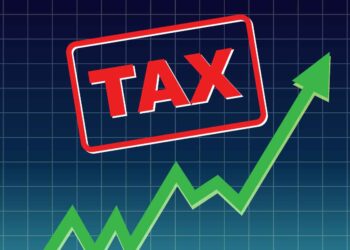Planning for retirement is a critical aspect of financial well-being, and understanding the tax implications associated with pensions in Ireland is essential for effective retirement planning. The Irish pension system offers various tax incentives to encourage saving for retirement, but it also imposes taxes on pension benefits.
This guide provides an in-depth look at how pensions are taxed in Ireland, offering pension tax advice to help you make informed decisions about your retirement savings.
Pensions in Ireland can be difficult to understand, so we are here to offer pension advice.
Tax Relief on Pension Contributions
One of the primary advantages of contributing to a pension in Ireland is the tax relief available on contributions. When you contribute to a pension plan, you can receive tax relief at your marginal rate of income tax. This means that for every €100 contributed, you can reduce your taxable income by €100, effectively lowering your income tax liability.
The amount of tax-relievable contributions you can make annually is subject to age-related limits, expressed as a percentage of your earnings:
- Under 30 years: Up to 15% of earnings
- 30-39 years: Up to 20% of earnings
- 40-49 years: Up to 25% of earnings
- 50-54 years: Up to 30% of earnings
- 55-59 years: Up to 35% of earnings
- 60 years and over: Up to 40% of earnings
These contributions are also subject to an overall earnings cap, which is periodically adjusted by the government. It’s important to stay updated on these limits to maximize your tax relief benefits.
Taxation of Pension Growth
The funds within your pension grow tax-free, allowing for compound growth without the drag of annual taxes. This tax-free growth applies to investment income and capital gains within the pension fund, enabling your retirement savings to accumulate more efficiently over time.
Tax-Free Lump Sum at Retirement
Upon reaching retirement, you have the option to withdraw a portion of your pension as a tax-free lump sum. The current rules allow for a tax-free lump sum of up to €200,000. For amounts between €200,001 and €500,000, a standard rate of 20% applies. Any lump sum exceeding €500,000 is taxed at your marginal rate, along with applicable Universal Social Charge (USC) and Pay Related Social Insurance (PRSI), if applicable.
Taxation of Pension Income
After taking the lump sum, the remaining pension fund can be used to provide a regular income in retirement. This income is subject to income tax at your marginal rate, USC, and PRSI (up to age 66). The specific tax liability depends on your total income, including the state pension and any other sources of income.
Standard Fund Threshold (SFT)
The Standard Fund Threshold is the maximum allowable pension fund value for tax purposes. As of the latest regulations, the SFT is set at €2 million. Pension savings exceeding this threshold are subject to a significant tax charge, known as the “chargeable excess tax,” which is currently 40%. It’s crucial to monitor your pension fund’s value to avoid breaching the SFT and incurring additional taxes.
State Pension and Taxation
The State Pension (Contributory) is a regular payment from the government to individuals who have paid sufficient Pay Related Social Insurance (PRSI) contributions. While the state pension is a vital component of retirement income, it’s important to note that it is considered taxable income. However, depending on your total income, you may not have a tax liability if your income is below the exemption limits.
Deferring the State Pension for Tax Efficiency
For individuals over the age of 66 who continue to work, receiving the state pension alongside employment income can result in a higher overall tax liability. An alternative strategy is to defer claiming the state pension until a later age, such as 70. By deferring, you may benefit from a lower tax rate on the pension income when you eventually claim it, potentially resulting in significant tax savings over time. It’s advisable to consult with a financial advisor to determine if deferring the state pension aligns with your personal financial situation.
Approved Retirement Funds (ARFs) and Approved Minimum Retirement Funds (AMRFs)
Upon retirement, instead of purchasing an annuity, you may choose to invest your pension funds into an Approved Retirement Fund (ARF). An ARF allows you to manage your retirement funds and make withdrawals as needed. Withdrawals from an ARF are subject to income tax, USC, and PRSI (if applicable). There is also an imputed distribution requirement, meaning you must withdraw a minimum percentage annually, which is subject to taxation.
Previously, individuals were required to invest a portion of their pension into an Approved Minimum Retirement Fund (AMRF) or purchase an annuity to ensure a minimum level of income. However, recent changes have removed the AMRF requirement, providing greater flexibility in how retirees can manage their pension funds.
Inheritance and Pension Funds
Pension funds can have implications for inheritance planning. In the event of your passing, the treatment of remaining pension funds depends on factors such as the type of pension arrangement and the age at death. For instance, funds in an ARF can be inherited by your spouse or children, but different tax treatments apply depending on the beneficiary’s relationship to you and their age. Understanding these nuances is essential for effective estate planning.
Conclusion
Navigating the taxation of pensions in Ireland requires a thorough understanding of the various rules and regulations that apply at different stages of retirement planning.
From maximizing tax relief on contributions to understanding the implications of withdrawals and inheritance, each aspect plays a crucial role in optimizing your retirement income. Given the complexity and potential changes in tax laws, consulting with a qualified financial advisor is highly recommended to tailor a retirement strategy that aligns with your financial goals and ensures compliance with current tax legislation.
Note: Tax regulations are subject to change. It’s important to stay informed about the latest tax laws and consult with financial professionals for personalized advice.











